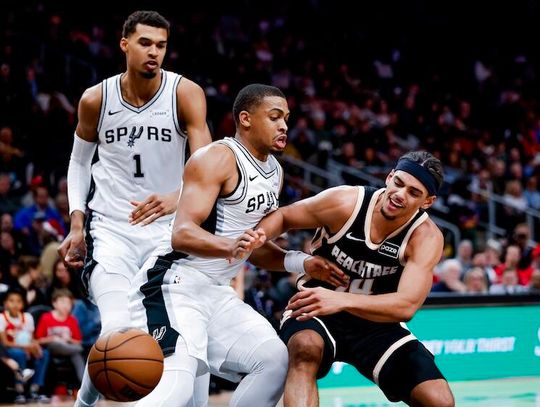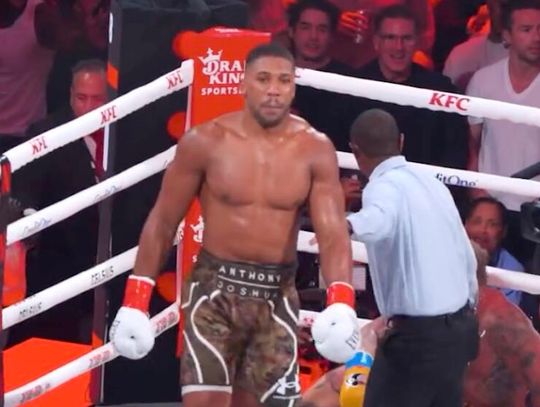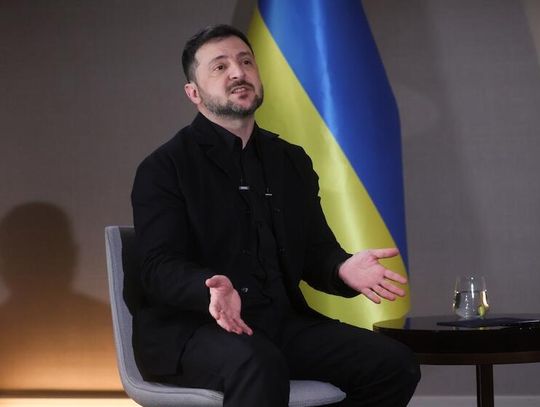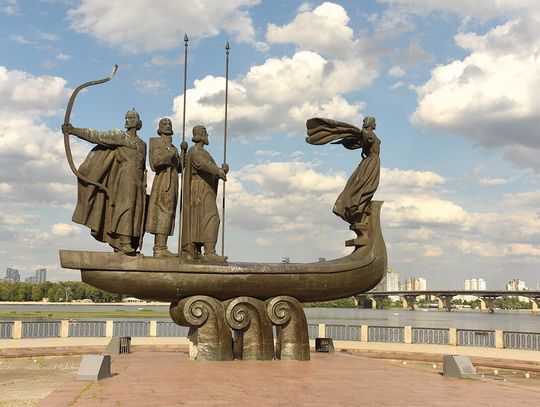Zawsze, od kiedy pamiętam, obchodziliśmy Święto Dziękczynienia. Mama piekła indyka, tata pomagał jej w kuchni, a ja z siostrą oglądaliśmy paradę Macy’s. Kiedy się kończyła, zaczynaliśmy ucztę. Był pyszny indyk i wszystkie dodatki – znakomite nadzienie, ciasto ze słodkich ziemniaków, pieczona fasolka, rogaliki, tłuczone ziemniaki i domowe rogaliki. Mieliśmy wszystko. Oprócz jednego.
Rodziny.
W Święto Dziękczynienia zawsze byliśmy sami, tylko nasza czwórka – mama, tata, moja siostra Donna i ja. Nie mieliśmy nikogo innego, by dzielić z nim dziękczynny stół. Ojciec pochodził z niewielkiej rodziny, a wojnę przetrwał jedynie jego brat, który po uwolnieniu z obozu pracy wrócił do Polski. Rodzina mojej mamy była liczna, ale jej historia podobna do historii rodziny taty. Z ośmiorga braci i sióstr mamy tylko troje przetrwało wojnę. Brat mamy, jeden z tej trójki, został pod koniec wojny zesłany przez Rosjan na Syberię i tam umarł.
Święto Dziękczynienia, podobnie jak Boże Narodzenie i Wielkanoc, było cichym świętem. Tylko nasza czwórka siedząca przy stole. Moi rodzice niewiele mówili podczas świątecznych posiłków, a kiedy podrosłem, zacząłem podejrzewać, że nie rozmawiali ponieważ myślami byli ze swoimi braćmi i siostrami, których zostawili w Polsce.
Kilka lat temu napisałem wiersz, który zadedykowałem członkom mojej rodziny, którzy nie mogli usiąść z nami do stołu w Święto Dziękczynienia, tym, którzy nie przeżyli wojny.
Wiersz na Święto Dziękczynienia
Wszyscy moi ludzie byli Polakami,
którzy przetrwali, by patrzeć
w moje oczy i dotykać moich palców,
i tymi, którzy zamiast przetrwać, umarli
od gorączki, głodu lub kuli
w twarz, a umierając myśleli być może
o tym, że ich śmierć zrównoważą
moje narodziny albo o którejś
historii, jakie Polacy opowiadają
by dodać sobie siły
na wyczołganie się z własnych grobów.
Nie wszyscy mieli tę siłę
ale wystarczająco dużo, żebym ja tu był
i ty, który czytasz ten wiersz
o nich. Co trzymało ich przy życiu?
Może coś w duszach
ludzi, którzy zaczynają z niczym
i kończą z niczym, a w międzyczasie
żyją od jednej garści niczego
do następnej garści niczego.
Idą naprzód – przez straszliwy
śnieg i żałosność
deszczu – dopóki jakiś człowiek przebije
im brzuch bagnetem
albo dopadnie ich choroba, ale i tak
idą naprzód, nawet kiedy
w drabinie zabraknie szczebli
nawet kiedy zabraknie drabin.
Thanksgiving Day
We always celebrated Thanksgiving Day. My mom would bake the turkey, my dad would help her in the kitchen, and my sister and I would watch the Macy’s Thanksgiving Day parade. When it was over, we would dive into the turkey and all the fixings, sweet potato pie, mash potatoes, roasted green beans, homemade rolls and absolutely great stuffing. Everything was there. Except for one thing. Family. We always had Thanksgiving alone, just the four of us, my mom and dad and my sister Donna and me. We had no one else to share Thanksgiving Dinner with. My dad came from a small family, but only his brother survived the war, and he went back to Poland after he was freed from the slave labor camps. My mom was from a big family but her story was similar. Of her eight brothers and sisters, only 3 survived the war. And of those three, one was sent to Siberia by the Russians at the end of the war and died there. So Thanksgiving Day, like Christmas Day, and Easter Sunday were quiet times. Just the four of us sitting around a table. My parents didn’t talk much over those dinners, but as I grew older I came to suspect that they weren’t talking because there thoughts were with the brothers and sisters they left behind in Poland. A couple of years ago, I wrote a poem that’s dedicated to my family members who couldn’t make it to Thanksgiving Dinner, the ones who didn’t make it out of the World War II alive. Here’s the poems:
Thanksgiving Day Poem
My people were all Polish people,
the ones who survived to look
in my eyes and touch my fingers
and those who didn’t, dying instead
of fever or hunger or a bullet
in the face, dying maybe thinking
of how their deaths were balanced
by my birth or one of the other
stories the Poles tell themselves
to give themselves the strength
to crawl out of their own graves.
Not all of them had this strength
but enough did, so that I’m here
and you’re here reading this poem
about them. What kept them going?
Maybe something in the souls
of people who start with nothing
and end with nothing, and in between
live from one handful of nothing
to the next handful of nothing.
They keep going--through the terror
in the snow and the misery
in the rain--till some guy pierces
their stomachs with a bayonet
or some sickness grips them, and still
they keep going, even when
there aren’t any rungs on the ladder
even when there aren’t any ladders.
John Guzlowski amerykański pisarz i poeta polskiego pochodzenia. Publikował w wielu pismach literackich, zarówno w USA, jak i za granicą, m.in. w „Writer’s Almanac”, „Akcent”, „Ontario Review” i „North American Review”. Jego wiersze i eseje opisujące przeżycia jego rodziców – robotników przymusowych w nazistowskich Niemczech oraz uchodźców wojennych, którzy emigrowali do Chicago – ukazały się we wspomnieniowym tomie pt. „Echoes of Tattered Tongues”. W 2017 roku książka ta zdobyła nagrodę poetycką im. Benjamina Franklina oraz nagrodę literacką Erica Hoffera, za najbardziej prowokującą do myślenia książkę roku. Jest również autorem dwóch powieści kryminalnych o detektywie Hanku Purcellu oraz powieści wojennej pt. „Road of Bones”. John Guzlowski jest emerytowanym profesorem Eastern Illinois University.
John Guzlowski's writing has been featured in Garrison Keillor’s Writer’s Almanac, Akcent, Ontario Review, North American Review, and other journals here and abroad. His poems and personal essays about his Polish parents’ experiences as slave laborers in Nazi Germany and refugees in Chicago appear in his memoir Echoes of Tattered Tongues. Echoes received the 2017 Benjamin Franklin Poetry Award and the Eric Hoffer Foundation's Montaigne Award for most thought-provoking book of the year. He is also the author of two Hank Purcell mysteries and the war novel Road of Bones. Guzlowski is a Professor Emeritus at Eastern Illinois University. fot.Pexels.com










